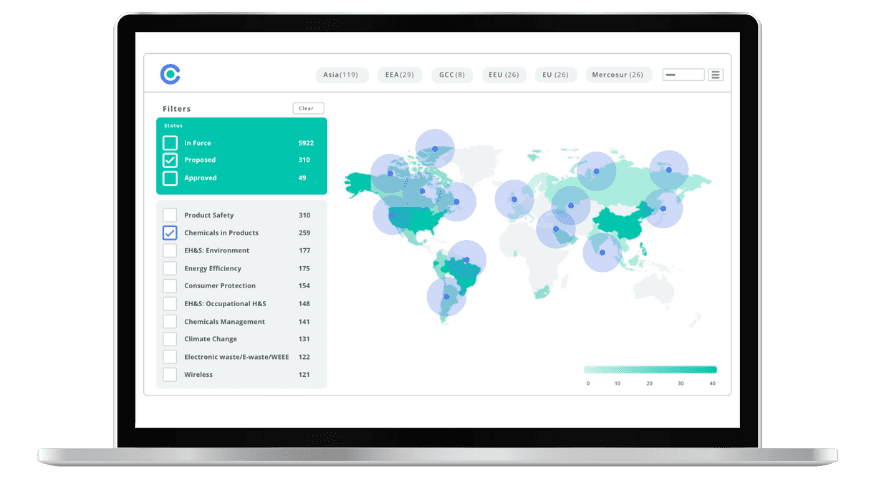
U.S. Congress Urges Homeland Security to Strengthen Enforcement of the Uyghur Forced Labor Prevention Act

This blog was originally posted on 12th February, 2024. Further regulatory developments may have occurred after publication. To keep up-to-date with the latest compliance news, sign up to our newsletter.
AUTHORED BY CELIA LE LIEVRE, SENIOR REGULATORY COMPLIANCE SPECIALIST, COMPLIANCE & RISKS
Introduction
The growing complexity of supply chains around the world has made them prime targets for slavery activities. Beyond the ethical implications, companies must also consider the serious financial, legal, reputational and operational risks if the issue is not properly identified and addressed.
In a letter dated on 19 January 2024, the Select Committee on the Chinese Communist Party (CCP) urged the U.S Department of Homeland Security (DHS) to take immediate actions to strengthen the enforcement of the Uyghur Forced Labor Prevention Act.
In this blog, we look at the Uyghur Forced Labor Prevention Act, and the recent recommendations by the CCP Committee.
Uyghur Forced Labor Prevention Act
The Uyghur Forced Labor Prevention Act, also known as UFLPA, establishes a “rebuttable presumption” of forced labor for goods that are produced or manufactured in whole or in part in the Xinjiang Uyghur Autonomous Region (XUAR) of China or by an entity on the UFLPA Entity List. These goods are prohibited from entering the United States pursuant to Section 307 of the U.S. Tariff Act. UFLPA was signed into law on 23 December, 2021.
In its letter addressed to the DHS Secretary, the CCP Committee raises concerns regarding the existence of factors undermining the effective enforcement of the UFLPA.
Among these factors, the Committee explains that companies tend to transfer forced laborer’s to other regions in the Republic of China thereby complicating any attempt to effectively enforce the ban on forced labor products from the XUAR. A second factor undermining enforcement of the UFLPA is “Beijing’s increased transshipment of forced labor products to the United States through third countries, including U.S. free trade agreement (FTA) partners”.
Recommendations
To tackle these shortcomings, the Committee recommends taking the following actions:
- Expand the UFLPA Entity List to include numerous companies and entities located outside the XUAR because of the affiliation to companies and entities in the region;
- Expand the UFLPA Entity List to include companies outside the Republic of China that profit from the use of Uyghur forced labor;
- Exponentially increasing testing of goods at ports of entry for UFLPA violations, including by expanding the use of isotopic and other testing;
- Improve publicity of CBP’s enforcement activities to deter would-be violators;
- Increase on-site inspections if production sites in CAFTA-DR and USMCA countries to conduct rule of origin verification investigations;
- Expand national-level collaboration between DHS, DOJ, and other interagency partners in prosecuting international trade crimes.
In addition to the above, the Committee identifies the so-called “de minimis” provision in U.S. trade law as another factor undermining the enforcement of the UFLPA. According to the Committee, assessing UFLPA compliance for de minimis shipments is challenging since packages shipped via this provision include limited data and do not require a customs broker.
To address this concern, the Committee calls on DHS to assess, in writing, the potential effect on UFLPA enforcement efforts of altering de minimis eligibility for textile and apparel and other high-risk items. The assessment should also consider whether exceptions to de minimis treatment are warranted for certain high-risk items to prevent unlawful importations.
What’s Next?
The Committee requests the DHS Secretary to provide written responses to its letter by March 1, 2024.
Stay Ahead Of Regulatory Changes
Want to stay ahead of ESG regulatory developments like the Uyghur Forced Labor Prevention Act?
Accelerate your ability to achieve, maintain & expand market access for all products in global markets with C2P – Your key to unlocking market access, trusted by more than 300 of the world’s leading brands.
C2P is an enterprise SaaS platform providing everything you need in one place to achieve your business objectives by proving compliance in over 195 countries.
C2P is purpose-built to be tailored to your specific needs with comprehensive capabilities that enable enterprise-wide management of regulations, standards, requirements and evidence.
Add-on packages help accelerate market access through use-case-specific solutions, global regulatory content, a global team of subject matter experts and professional services.
- Accelerate time-to-market for products
- Reduce non-compliance risks that impact your ability to meet business goals and cause reputational damage
- Enable business continuity by digitizing your compliance process and building corporate memory
- Improve efficiency and enable your team to focus on business critical initiatives rather than manual tasks
- Save time with access to Compliance & Risks’ extensive Knowledge Partner network

ESG 2023: A Year in Review
Our whitepaper summarizes the ESG regulatory landscape in 2023, reviewing the key regulations proposed, published and/or entered into force.


